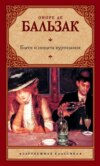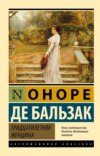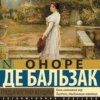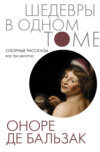Читать книгу: «Droll Stories – Complete», страница 33
ODD SAYINGS OF THREE PILGRIMS
When the pope left his good town of Avignon to take up his residence in Rome, certain pilgrims were thrown out who had set out for this country, and would have to pass the high Alps, in order to gain this said town of Rome, where they were going to seek the remittimus of various sins. Then were to be seen on the roads, and the hostelries, those who wore the order of Cain, otherwise the flower of the penitents, all wicked fellows, burdened with leprous souls, which thirsted to bathe in the papal piscina, and all carrying with them gold or precious things to purchase absolution, pay for their beds, and present to the saints. You may be sure that those who drank water going, on their return, if the landlords gave them water, wished it to be the holy water of the cellar.
At this time the three pilgrims came to this said Avignon to their injury, seeing that it was widowed of the pope. While they were passing the Rhodane, to reach the Mediterranean coast, one of the three pilgrims, who had with him a son about 10 years of age, parted company with the others, and near the town of Milan suddenly appeared again, but without the boy. Now in the evening, at supper, they had a hearty feast in order to celebrate the return of the pilgrim, who they thought had become disgusted with penitence through the pope not being in Avignon. Of these three roamers to Rome, one had come from the city of Paris, the other from Germany, and the third, who doubtless wished to instruct his son on the journey, had his home in the duchy of Burgundy, in which he had certain fiefs, and was a younger son of the house of Villers-la-Faye (Villa in Fago), and was named La Vaugrenand. The German baron had met the citizen of Paris just past Lyons, and both had accosted the Sire de la Vaugrenand in sight of Avignon.
Now in this hostelry the three pilgrims loosened their tongues, and agreed to journey to Rome together, in order the better to resist the foot pads, the night-birds, and other malefactors, who made it their business to ease pilgrims of that which weighed upon their bodies before the pope eased them of that which weighed upon their consciences. After drinking the three companions commenced to talk together, for the bottle is the key of conversation, and each made this confession – that the cause of his pilgrimage was a woman. The servant who watched their drinking, told them that of a hundred pilgrims who stopped in the locality, ninety-nine were travelling from the same thing. These three wise men then began to consider how pernicious is woman to man. The Baron showed the heavy gold chain that he had in his hauberk to present to Saint Peter, and said his crime was such that he would not get rid of with the value of two such chains. The Parisian took off his glove, and exposed a ring set with a white diamond, saying that he had a hundred like it for the pope. The Burgundian took off his hat, and exhibited two wonderful pearls, that were beautiful ear-pendants for Notre-Dame-de-Lorette, and candidly confessed that he would rather have left them round his wife’s neck.
Thereupon the servant exclaimed that their sins must have been as great as those of Visconti.
Then the pilgrims replied that they were such that they had made a solemn vow in their minds never to go astray again during the remainder of their days, however beautiful the woman might be, and this in addition to the penance which the pope might impose upon them.
Then the servant expressed her astonishment that all had made the same vow. The Burgundian added, that this vow had been the cause of his lagging behind, because he had been in extreme fear that his son, in spite of his age, might go astray, and that he had made a vow to prevent people and beasts alike gratifying their passions in his house, or upon his estates. The baron having inquired the particulars of the adventure, the sire narrated the affair as follows: —
“You know that the good Countess Jeane d’Avignon made formerly a law for the harlots, who she compelled to live in the outskirts of the town in houses with window-shutters painted red and closed. Now passing in my company in this vile neighbourhood, my lad remarked these houses with closed window-shutters, painted red, and his curiosity being aroused – for these ten-year old little devils have eyes for everything – he pulled me by the sleeve and kept on pulling until he had learnt from me what these houses were. Then, to obtain peace, I told him that young lads had nothing to do with such places, and could only enter them at the peril of their lives, because it was a place where men and women were manufactured, and the danger was such for anyone unacquainted with the business that if a novice entered, flying chancres and other wild beasts would seize upon his face. Fear seized the lad, who then followed me to the hostelry in a state of agitation, and not daring to cast his eyes upon the said bordels. While I was in the stable, seeing to the putting up of the horses, my son went off like a robber, and the servant was unable to tell me what had become of him. Then I was in great fear of the wenches, but had confidence in the laws, which forbade them to admit such children. At supper-time the rascal came back to me looking no more ashamed of himself than did our divine Saviour in the temple among the doctors.
“‘Whence comes you?’ said I to him.
“‘From the houses with the red shutters,’ he replied.
“‘Little blackguard,’ said I, ‘I’ll give you a taste of the whip.’
“Then he began to moan and cry. I told him that if he would confess all that had happened to him I would let him off the beating.
“‘Ha,’ said he, ‘I took care not to go in, because of the flying chancres and other wild beasts. I only looked through the chinks of the windows, in order to see how men were manufactured.’
“‘And what did you see?’ I asked.
“‘I saw,’ said he, ‘a fine woman just being finished, because she only wanted one peg, which a young worker was fitting in with energy. Directly she was finished she turned round, spoke to, and kissed her manufacturer.’
“‘Have your supper,’ said I; and the same night I returned into Burgundy, and left him with his mother, being sorely afraid that at the first town he might want to fit a peg into some girl.”
“These children often make these sort of answers,” said the Parisian. “One of my neighbour’s children revealed the cuckoldom of his father by a reply. One day I asked, to see if he was well instructed at school in religious matters, ‘What is hope?’ ‘One of the king’s big archers, who comes here when father goes out,’ said he. Indeed, the sergeant of the Archers was named Hope. My friend was dumbfounded at this, and, although to keep his countenance he looked in the mirror, he could not see his horns there.”
The baron observed that the boy’s remark was good in this way: that Hope is a person who comes to bed with us when the realities of life are out of the way.
“Is a cuckold made in the image of God?” asked the Burgundian.
“No,” said the Parisian, “because God was wise in this respect, that he took no wife; therefore is He happy through all eternity.”
“But,” said the maid-servant, “cuckolds are made in the image of God before they are horned.”
Then the three pilgrims began to curse women, saying that they were the cause of all the evils in the world.
“Their heads are as empty as helmets,” said the Burgundian.
“Their hearts are as straight as bill-hooks,” said the Parisian.
“Why are there so many men pilgrims and so few women pilgrims?” said the German baron.
“Their cursed member never sins,” replied the Parisian; “it knows neither father nor mother, the commandments of God, nor those of the Church, neither laws divine or human: their member knows no doctrine, understands no heresies, and cannot be blamed; it is innocent of all, and always on the laugh; its understanding is nil; and for this reason do I hold it in utter detestation.”
“I also,” said the Burgundian, “and I begin to understand the different reading by a learned man of the verses of the Bible, in which the account of the creation is given. In this Commentary, which in my country we call a Noel, lies the reason of imperfection of this feature of women, of which, different to that of other females, no man can slake the thirst, such diabolical heat existing there. In this Noel is stated that the Lord God, having turned his head to look at a donkey, who had brayed for the first time in his Paradise, while he was manufacturing Eve, the devil seized this moment to put his finger into this divine creature, and made a warm wound, which the Lord took care to close with a stitch, from which comes the maid. By means of this frenum, the woman should remain closed, and children be made in the same manner in which God made the angels, by a pleasure far above carnal pleasure as the heaven is above the earth. Observing this closing, the devil, wild at being done, pinched the Sieur Adam, who was asleep, by the skin, and stretched a portion of it out in imitation of his diabolical tail; but as the father of man was on his back this appendage came out in front. Thus these two productions of the devil had the desire to reunite themselves, following the law of similarities which God had laid down for the conduct of the world. From this came the first sin and the sorrows of the human race, because God, noticing the devil’s work, determined to see what would come of it.”
The servant declared that they were quite correct in the statements, for that woman was a bad animal, and that she herself knew some who were better under the ground than on it. The pilgrims, noticing then how pretty the girl was, were afraid of breaking their vows, and went straight to bed. The girl went and told her mistress she was harbouring infidels, and told her what they had said about women.
“Ah!” said the landlady, “what matters it to me the thoughts my customers have in their brains, so long as their purses are well filled.”
And when the servant had told of the jewels, she exclaimed —
“Ah, these are questions which concern all women. Let us go and reason with them. I’ll take the nobles, you can have the citizen.”
The landlady, who was the most shameless inhabitant of the duchy of Milan, went into the chamber where the Sire de La Vaugrenand and the German baron were sleeping, and congratulated them upon their vows, saying that the women would not lose much by them; but to accomplish these said vows it was necessary they should endeavour to withstand the strongest temptations. Then she offered to lie down beside them, so anxious were she to see if she would be left unmolested, a thing which had never happened to her yet in the company of a man.
On the morrow, at breakfast, the servant had the ring on her finger, her mistress had the gold chain and the pearl earrings. The three pilgrims stayed in the town about a month, spending there all the money they had in their purses, and agreed that if they had spoken so severely of women it was because they had not known those of Milan.
On his return to Germany the Baron made this observation: that he was only guilty of one sin, that of being in his castle. The Citizen of Paris came back full of stories for his wife, and found her full of Hope. The Burgundian saw Madame de La Vaugrenand so troubled that he nearly died of the consolations he administered to her, in spite of his former opinions. This teaches us to hold our tongues in hostelries.
INNOCENCE
By the double crest of my fowl, and by the rose lining of my sweetheart’s slipper! By all the horns of well-beloved cuckolds, and by the virtue of their blessed wives! the finest work of man is neither poetry, nor painted pictures, nor music, nor castles, nor statues, be they carved never so well, nor rowing, nor sailing galleys, but children.
Understand me, children up to the age of ten years, for after that they become men or women, and cutting their wisdom teeth, are not worth what they cost; the worst are the best. Watch them playing, prettily and innocently, with slippers; above all, cancellated ones, with the household utensils, leaving that which displeases them, crying after that which pleases them, munching the sweets and confectionery in the house, nibbling at the stores, and always laughing as soon as their teeth are cut, and you will agree with me that they are in every way lovable; besides which they are flower and fruit – the fruit of love, the flower of life. Before their minds have been unsettled by the disturbances of life, there is nothing in this world more blessed or more pleasant than their sayings, which are naive beyond description. This is as true as the double chewing machine of a cow. Do not expect a man to be innocent after the manner of children, because there is an, I know not what, ingredient of reason in the naivety of a man, while the naivety of children is candid, immaculate, and has all the finesse of the mother, which is plainly proved in this tale.
Queen Catherine was at that time Dauphine, and to make herself welcome to the king, her father-in-law, who at that time was very ill indeed, presented him, from time to time, with Italian pictures, knowing that he liked them much, being a friend of the Sieur Raphael d’Urbin and of the Sieurs Primatice and Leonardo da Vinci, to whom he sent large sums of money. She obtained from her family – who had the pick of these works, because at that time the Duke of the Medicis governed Tuscany – a precious picture, painted by a Venetian named Titian (artist to the Emperor Charles, and in very high flavour), in which there were portraits of Adam and Eve at the moment when God left them to wander about the terrestrial Paradise, and were painted their full height, in the costume of the period, in which it is difficult to make a mistake, because they were attired in their ignorance, and caparisoned with the divine grace which enveloped them – a difficult thing to execute on account of the colour, but one in which the said Sieur Titian excelled. The picture was put into the room of the poor king, who was then ill with the disease of which he eventually died. It had a great success at the Court of France, where everyone wished to see it; but no one was able to until after the king’s death, since at his desire it was allowed to remain in his room as long as he lived.
One day Madame Catherine took with her to the king’s room her son Francis and little Margot, who began to talk at random, as children will. Now here, now there, these children had heard this picture of Adam and Eve spoken about, and had tormented their mother to take them there. Since the two little ones at times amused the old king, Madame the Dauphine consented to their request.
“You wished to see Adam and Eve, who were our first parents; there they are,” said she.
Then she left them in great astonishment before Titian’s picture, and seated herself by the bedside of the king, who delighted to watch the children.
“Which of the two is Adam?” said Francis, nudging his sister Margot’s elbow.
“You silly!” replied she, “to know that, they would have to be dressed!”
This reply, which delighted the poor king and the mother, was mentioned in a letter written in Florence by Queen Catherine.
No writer having brought it to light, it will remain, like a sweet flower, in a corner of these Tales, although it is no way droll, and there is no other moral to be drawn from it except that to hear these pretty speeches of infancy one must beget the children.
THE FAIR IMPERIA MARRIED
I HOW MADAME IMPERIA WAS CAUGHT BY THE VERY NET SHE WAS ACCUSTOMED TO SPREAD FOR HER LOVE-BIRDS
The lovely lady Imperia, who gloriously opens these tales, because she was the glory of her time, was compelled to come into the town of Rome, after the holding of the council, for the cardinal of Ragusa loved her more than his cardinal’s hat, and wished to have her near him. This rascal was so magnificent, that he presented her with the beautiful palace that he had in the Papal capital. About this time she had the misfortune to find herself in an interesting condition by this cardinal. As everyone knows, this pregnancy finished with a fine little daughter, concerning whom the Pope said jokingly that she should be named Theodora, as if to say The Gift Of God. The girl was thus named, and was exquisitely lovely. The cardinal left his inheritance to this Theodora, whom the fair Imperia established in her hotel, for she was flying from Rome as from a pernicious place, where children were begotten, and where she had nearly spoiled her beautiful figure, her celebrated perfections, lines of the body, curves of the back, delicious breasts, and Serpentine charms which placed her as much above the other women of Christendom as the Holy Father was above all other Christians. But all her lovers knew that with the assistance of eleven doctors of Padua, seven master surgeons of Pavia, and five surgeons come from all parts, who assisted at her confinement, she was preserved from all injury. Some go so far as to say that she gained therein superfineness and whiteness of skin. A famous man, of the school of Salerno, wrote a book on the subject, to show the value of a confinement for the freshness, health, preservation, and beauty of women. In this very learned book it was clearly proved to readers that that which was beautiful to see in Imperia, was that which it was permissible for lovers alone to behold; a rare case then, for she did not disarrange her attire for the petty German princes whom she called her margraves, burgraves, electors, and dukes, just as a captain ranks his soldiers.
Everyone knows that when she was eighteen years of age, the lovely Theodora, to atone for her mother’s gay life, wished to retire into the bosom of the Church. With this idea she placed herself in the hands of a cardinal, in order that he might instruct her in the duties of the devout. This wicked shepherd found the lamb so magnificently beautiful that he attempted to debauch her. Theodora instantly stabbed herself with a stiletto, in order not to be contaminated by the evil-minded priest. This adventure, which was consigned to the history of the period, made a great commotion in Rome, and was deplored by everyone, so much was the daughter of Imperia beloved.
Then this noble courtesan, much afflicted, returned to Rome, there to weep for her poor daughter. She set out in the thirty-ninth year of her age, which was, according to some authors, the summer of her magnificent beauty, because then she had obtained the acme of perfection, like ripe fruit. Sorrow made her haughty and hard with those who spoke to her of love, in order to dry her tears. The pope himself visited her in her palace, and gave her certain words of admonition. But she refused to be comforted, saying that she would henceforth devote herself to God, because she had never yet been satisfied by any man, although she had ardently desired it; and all of them, even a little priest, whom she had adored like a saint’s shrine, had deceived her. God, she was sure, would not do so.
This resolution disconcerted many, for she was the joy of a vast number of lords. So that people ran about the streets of Rome crying out, “Where is Madame Imperia? Is she going to deprive the world of love?” Some of the ambassadors wrote to their masters on the subject. The Emperor of the Romans was much cut up about it, because he had loved her to distraction for eleven weeks; had left her only to go to the wars, and loved her still as much as his most precious member, which according to his own statement, was his eye, for that alone embraced the whole of his dear Imperia. In this extremity the Pope sent for a Spanish physician, and conducted him to the beautiful creature, to whom he proved, by various arguments, adorned with Latin and Greek quotations, that beauty is impaired by tears and tribulation, and that through sorrow’s door wrinkles step in. This proposition, confirmed by the doctors of the Holy College in controversy, had the effect of opening the doors of the palace that same evening. The young cardinals, the foreign envoys, the wealthy inhabitants, and the principal men of the town of Rome came, crowded the rooms, and held a joyous festival; the common people made grand illuminations, and thus the whole population celebrated the return of the Queen of Pleasure to her occupation, for she was at that time the presiding deity of Love. The experts in all the arts loved her much, because she spent considerable sums of money improving the Church in Rome, which contained poor Theodora’s tomb, which was destroyed during that pillage of Rome in which perished the traitorous constable of Bourbon, for this holy maiden was placed therein in a massive coffin of gold and silver, which the cursed soldiers were anxious to obtain. The basilic cost, it is said, more than the pyramid erected by the Lady Rhodepa, an Egyptian courtesan, eighteen hundred years before the coming of our divine Saviour, which proves the antiquity of this pleasant occupation, the extravagant prices which the wise Egyptians paid for their pleasures, and how things deteriorate, seeing that now for a trifle you can have a chemise full of female loveliness in the Rue du Petit-Heulen, at Paris. Is it not abomination?
Never had Madame Imperia appeared so lovely as at this first gala after her mourning. All the princes, cardinals, and others declared that she was worthy the homage of the whole world, which was there represented by a noble from every known land, and thus was it amply demonstrated that beauty was in every place queen of everything.
The envoy of the King of France, who was a cadet of the house of l’Ile Adam, arrived late, although he had never yet seen Imperia, and was most anxious to do so. He was a handsome young knight, much in favour with his sovereign, in whose court he had a mistress, whom he loved with infinite tenderness, and who was the daughter of Monsieur de Montmorency, a lord whose domains bordered upon those of the house of l’Ile Adam. To this penniless cadet the king had given certain missions to the duchy of Milan, of which he had acquitted himself so well that he was sent to Rome to advance the negotiations concerning which historians have written so much in their books. Now if he had nothing of his own, poor little l’Ile Adam relied upon so good a beginning. He was slightly built, but upright as a column, dark, with black, glistening eyes; and a man not easily taken in; but concealing his finesse, he had the air of an innocent child, which made him gentle and amiable as a laughing maiden. Directly this gentleman joined her circle, and her eyes had rested upon him, Madame Imperia felt herself bitten by a strong desire, which stretched the harp strings of her nature, and produced therefrom a sound she had not heard for many a day. She was seized with such a vertigo of true love at the sight of this freshness of youth, that but for her imperial dignity she would have kissed the good cheeks which shone like little apples.
Now take note of this; that so called modest women, and ladies whose skirts bear their armorial bearings, are thoroughly ignorant of the nature of man, because they keep to one alone, like the Queen of France who believed all men had ulcers in the nose because the king had; but a great courtesan, like Madame Imperia, knew man to his core, because she had handled a great many. In her retreat, everyone came out in his true colours, and concealed nothing, thinking to himself that he would not be long with her. Having often deplored this subjection, sometimes she would remark that she suffered from pleasure more than she suffered from pain. There was the dark shadow of her life. You may be sure that a lover was often compelled to part with a nice little heap of crowns in order to pass the night with her, and was reduced to desperation by a refusal. Now for her it was a joyful thing to feel a youthful desire, like that she had for the little priest, whose story commences this collection; but because she was older than in those merry days, love was more fully established in her, and she soon perceived that it was of a fiery nature when it began to make itself felt; indeed, she suffered in her skin like a cat that is being scorched, and so much so that she had an intense longing to spring upon this gentleman, and bear him in triumph to her nest, as a kite does its prey, but with great difficulty she restrained herself. When he came and bowed to her, she threw back her head, and assumed a most dignified attitude, as do those who have a love infatuation in their hearts. The gravity of her demeanour to the young ambassador caused many to think that she had work in store for him; equivocating on the word, after the custom of the time.
L’Ile Adam, knowing himself to be dearly loved by his mistress, troubled himself but little about Madame Imperia, grave or gay, and frisked about like a goat let loose. The courtesan, terribly annoyed at this, changed her tone, from being sulky became gay and lively, came to him, softened her voice, sharpened her glance, gracefully inclined her head, rubbed against him with her sleeve, and called him Monsiegneur, embraced him with the loving words, trifled with his hand, and finished by smiling at him most affably. He, not imagining that so unprofitable a lover would suit her, for he was as poor as a church mouse, and did not know that his beauty was the equal in her eyes to all the treasures of the world, was not taken in her trap, but continued to ride the high horse with his hand on his hips. This disdain of her passion irritated Madame to the heart, which by this spark was set in flame. If you doubt this, it is because you know nothing of the profession of the Madame Imperia, who by reason of it might be compared to a chimney, in which a great number of fires have been lighted, which had filled it with soot; in this state a match was sufficient to burn everything there, where a hundred fagots has smoked comfortably. She burned within from top to toe in a horrible manner, and could not be extinguished save with the water of love. The cadet of l’Ile Adam left the room without noticing this ardour.
Madame, disconsolate at his departure, lost her senses from her head to her feet, and so thoroughly that she sent a messenger to him on the galleries, begging him to pass the night with her. On no other occasion of her life had she had this cowardice, either for king, pope, or emperor, since the high price of her favours came from the bondage in which she held her admirers, whom the more she humbled the more she raised herself. The disdainful hero of this history was informed by the head chamber-women, who was a clever jade, that in all probability a great treat awaited him, for most certainly Madame would regale him with her most delicate inventions of love. L’Ile Adam returned to the salons, delighted at this lucky chance. Directly the envoy of France reappeared, as everyone had seen Imperia turn pale at his departure, the general joy knew no bounds, because everyone was delighted to see her return to her old life of love. An English cardinal, who had drained more than one big-bellied flagon, and wished to taste Imperia, went to l’Ile Adam and whispered to him, “Hold her fast, so that she shall never again escape us.”
The story of this remark was told to the pope at his levee, and caused him to remark, Laetamini, gentes, quoniam surrexit Dominus. A quotation which the old cardinals abominated as a profanation of sacred texts. Seeing which, the pope reprimanded them severely, and took occasion to lecture them, telling them that if they were good Christians they were bad politicians. Indeed, he relied upon the fair Imperia to reclaim the emperor, and with this idea he syringed her well with flattery.
The lights of the palace being extinguished, the golden flagons on the floor, and the servants drunk and stretched about on the carpets, Madame entered her bedchamber, leading by the hand her dear lover-elect; and she was well pleased, and has since confessed that so strongly was she bitten with love, she could hardly restrain herself from rolling at his feet like a beast of the field, begging him to crush her beneath him if he could. L’Ile Adam slipped off his garments, and tumbled into bed as if he were in his own house. Seeing which, Madame hastened her preparations, and sprang into her lover’s arms with a frenzy that astonished her women, who knew her to be ordinarily one of the most modest of women on these occasions. The astonishment became general throughout the country, for the pair remained in bed for nine days, eating, drinking, and embracing in a marvellous and most masterly manner. Madame told her women that at last she had placed her hand on a phoenix of love, since he revived from every attack. Nothing was talked of in Rome and Italy but the victory that had been gained over Imperia, who had boasted that she would yield to no man, and spat upon all of them, even the dukes. As to the aforesaid margraves and burgraves, she gave them the tail of her dress to hold, and said that if she did not tread them under foot, they would trample upon her. Madame confessed to her servants that, differently to all other men she had had to put up with, the more she fondled this child of love, the more she desired to do so, and that she would never be able to part with him; nor his splendid eyes, which blinded her; nor his branch of coral, that she always hungered after. She further declared that if such were his desire, she would let him suck her blood, eat her breasts – which were the most lovely in the world – and cut her tresses, of which she had only given a single one to the Emperor of the Romans, who kept it in his breast, like a precious relic; finally, she confessed that on that night only had life begun for her, because the embrace of Villiers de l’Ile Adam sent the blood to her in three bounds and in a brace of shakes.





















